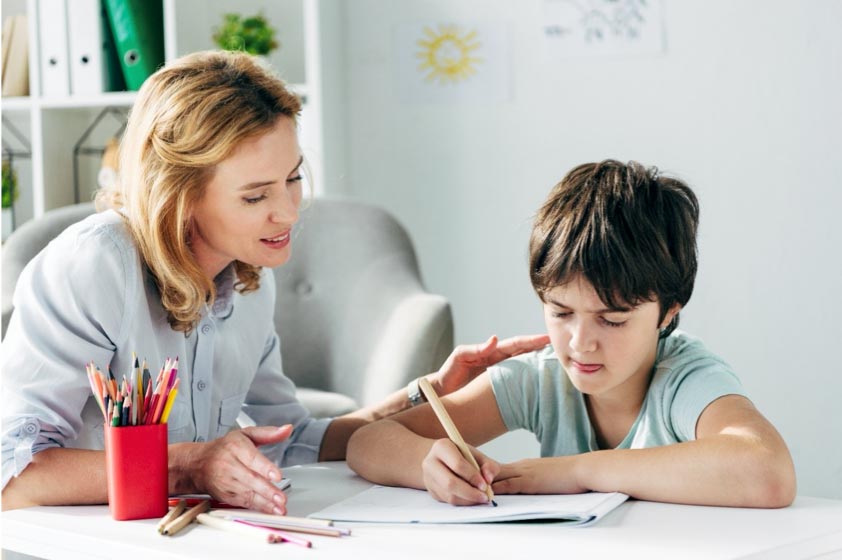Improved Daily Living NDIS Examples
hidden
NDIS improved daily living and your goals
The Improved Daily Living support category (or CB Daily Activity in the myplace portal) provides funding to help you achieve your NDIS goals. For example, your goal might be to become more independent. You might use funding for physiotherapy to support you to develop skills for mobilising safely at home and in your community.
This category can also fund early intervention therapies. For example, you might use funding for dietetics to support your child to enjoy a wider range of foods.
It can also include training for families and support people to help them care for an individual with a disability.
Services funded under the NDIS improved daily living category may be delivered individually or in groups.
Improved Daily Living under the NDIS – examples of how you might use your funding
The NDIS can fund therapy and/or training to help improve your everyday life. Provided supports meet reasonable and necessary criteria, you may be able to use Improved Daily Living category funding in various ways to increase your independence and develop skills that help you achieve your goals.
Here are some examples of how you might use NDIS Improved Daily Living funding.
Personalised assessments and reports
A thorough assessment and report are key to receiving the funding you need. Whether you need a specific piece of equipment or a block of therapy aimed at helping you achieve an NDIS goal, a high-quality assessment and report will boost your chances of receiving funding approval.
For example, an NDIS participant may seek funding for a new wheelchair or walking frame to support their ability to access their community. An occupational therapist or physiotherapist would need to conduct an assistive technology assessment to ensure the equipment is safe and suitable for the participant’s needs.
In another example, your child may need support from an exercise physiologist to develop the strength and agility skills needed to participate in a team sport. An assessment will identify which skills need to be worked on. The report will address assessment findings, along with providing a detailed plan for how therapy funding will support goal achievement.
Active Ability’s experienced team of NDIS-registered allied health professionals can assess your needs. They will create a detailed report addressing the reasonable and necessary criteria the NDIA focus on when making funding decisions.
hidden

One example of how you might use NDIS improved daily living funds is for training to read food labels.
Daily living skills training
Living each day as independently as possible requires a wide range of skills, including showering, toileting, dressing, transferring, moving around, and preparing meals. The NDIS Improved Daily Living category can provide funding for training to support development of these skills.
Our skilled exercise physiologists, physiotherapists and dietitians can assist you to identify strategies and build skills for managing everyday life, based on your NDIS goals.
For example, our physiotherapists might support you with functional task training, such as practice of mobility, transfers, or using stairs. Our exercise physiologists might teach you strategies for improving your energy and reducing fatigue.
Our dietitians might support you to manage grocery shopping more independently and read and understand food labels.
Read an example of how one of Active Ability’s dietitians helped an NDIS participant with autism and intellectual disability accept a broader variety of foods here.
Or click here for another example of how exercise physiology and dietetics helped another NDIS participant achieve her goal of making healthier choices.
Therapy programs
Funding within the NDIS Improved Daily Living category can be used to finance a range of therapies. Examples include occupational therapy, physiotherapy, speech therapy, exercise physiology, psychology and dietetics.
Along with the initial assessment, funding under this category can be used for ongoing therapy support.
Our team of NDIS registered allied health professionals can provide therapies that assist you to achieve your goals. They will work with you, and your support people, to create a personalised plan based on your needs. See what our team can do below!
- support development of your muscle strength and balance so you can safely participate in a community activity
- increase your fitness and endurance so you can participate in sport
- help your child develop the necessary skills to keep up with their peers.
Click here to read an example of how NDIS funding helped a young man with muscular dystrophy receive support from our exercise physiologists to achieve his goals.
In other examples of how NDIS participants use improved daily living funding, our physiotherapists might provide treatment to:
- help you better manage pain
- help your child develop gross and fine motor skills for school
- manage muscle tone issues – including high and low muscle tone.
Our dietitians might help you to:
- implement a texture-modified diet to reduce choking risk
- create and follow a dietary plan to support weight loss or help you to manage a health condition
- manage your child’s picky or fussy eating.
For another example of how NDIS funding can help you achieve your goals, read how exercise physiology and dietetics helped Bonnie – who has Down syndrome – to maintain her independence.

Improved daily living NDIS funding could be used to help your child develop fine motor skills
hidden
Advice and training for support people
For people living with a disability, their families and support people are often an important part of everyday life. Improved Daily Living NDIS funding can be used to train those caring for someone with a disability.
In addition to therapy for people with disability, Active Ability’s qualified health professionals can provide caregiver training and support. Our caring, experienced team provide tailored education and practical training to boost your skills and confidence with helping your loved one to achieve their goals.
For example, our physios could train you to assist with safe and effective transfers and mobility. Our dietitians might provide education about a health condition, and the role of diet in managing that condition successfully. Our exercise physiologists might teach you how to supervise a home exercise program to ensure it is completed safely and effectively.
Can I change how my improved daily living funding is allocated?
You can change how money allocated under the Improved Daily Living budget of your NDIS plan gets used.
For example, you might initially decide to use 40 percent of your funding on physiotherapy, 30 percent on occupational therapy and 30 per cent on exercise physiology. However, you might later decide to use a larger percentage on exercise physiology. Or you might no longer need occupational therapy and choose to assign that funding to dietetics instead.
This flexibility allows you to access services that best support you to reach your goals.
hidden
Support to help you achieve your goals
If you or your child has a disability and could do with support to achieve your goals, Active Ability’s experienced, NDIS registered allied health professionals can help. We focus on supporting people with intellectual disability, neurological disorders, and mental health conditions.
We can provide NDIS-funded services through both the ‘Improved Health and Wellbeing’ and ‘Improved Daily Living’ funding categories of your NDIS plan.
Our team will assess your needs, craft a personalised treatment plan, and provide evidence-based advice and treatment delivered with caring and professional service.
We don’t have a waiting list, so you can get started right away with your NDIS funded therapies. And we don’t charge for travel, so your funding can be best used for achieving your goals.
Find out more about our allied health services here, or get in touch with our friendly team on (02) 8678 7874, hello@activeability.com.au or via our contact form.